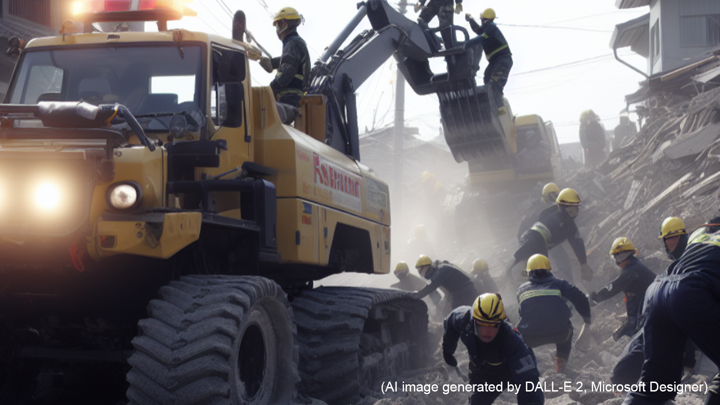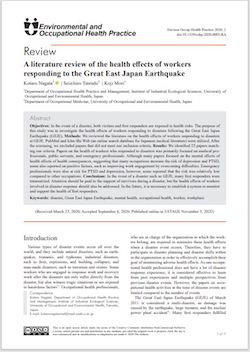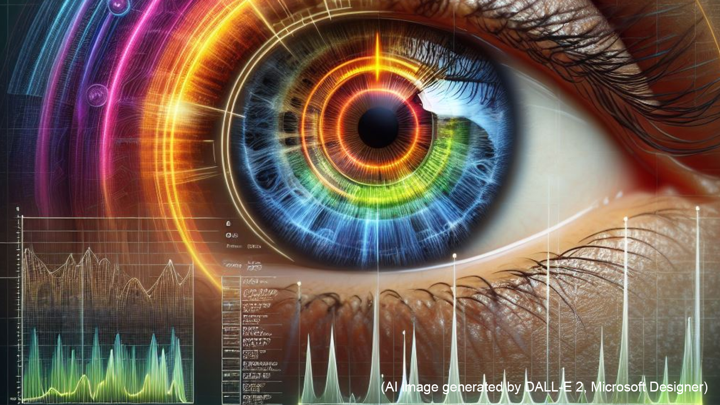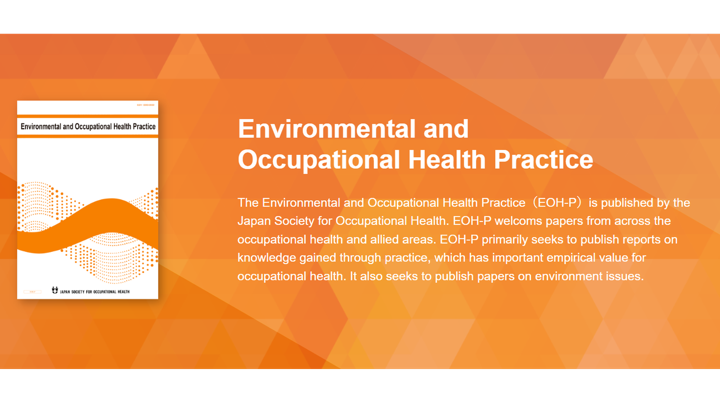#E0013 A literature review of the health effects of workers responding to the Great East Japan Earthquake

Assessing the Health Impact of First Responders in Emergency Situations
First responders such as medical professionals, civil servants, and emergency workers are at the forefront of any disaster. Their response and recovery work exposes them to hazardous conditions like rescuing people from a collapsed building to decontaminating a radiation zone after a leak. To understand the health impacts of first responders in such situations, we conducted a literature review of papers pertaining to the responders involved in the Great East Japan Earthquake (GEJE) of 2011, when an earthquake, tsunami, and a nuclear power plant accident wreaked havoc in Japan. The personnel we investigated were not involved in responding to the nuclear accident.
We found that medical professionals at disaster sites had an increased risk of developing post-traumatic stress disorder (PTSD) and depression. Resilience could play a role in those who did not develop these illnesses. Strikingly, workers also felt positive emotions like self-fulfillment and an increased sense of gratitude and appreciation for life. Studies suggested that rest periods, good workplace communication, and a strong camaraderie between colleagues reduced the risks of PTSD and depression.
Civil servants are heavily involved in the response to a disaster and those who were more resilient than others were unlikely to develop PTSD. Crucially, critical public feedback increased the risk of depression, PTSD, and mental stress in these professionals. Those who were directly impacted by the events, including those who lost relatives or had their home severely damaged, were at a higher risk of experiencing mental fatigue and PTSD. A robust care system would help public servants who are on the receiving end of residents’ complaints.
Lastly, emergency professionals on the scene who became tired or fatigued during the course of their work were at a high risk of experiencing depression. However, prior resilience was shown to reduce that risk. Living in harsh conditions such as camping shelters increased their mental stress, while those working with corpses had an elevated depression risk. Overall, they were less affected compared to other professionals, possibly because of their preparedness beforehand and having more experience in dealing with emergency situations.
Besides prioritizing the wellbeing of victims directly impacted by a disaster, monitoring the health of frontline workers and providing social support and other resources during testing times should be considered a priority. Governments should look into establishing an organization that is geared towards the health of first responders with these objectives in mind.

Link to the original journal article:
https://www.jstage.jst.go.jp/article/eohp/2/1/2_2020-0005-RA/_article
Title of the paper:
A literature review of the health effects of workers responding to the Great East Japan Earthquake
Authors:
Kotaro Nagata, Seiichiro Tateishi, Koji Mori




